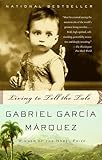For the last year or so, my father has been sending me obituaries through the mail. He used to send sports clippings — box scores or recaps from the Phoenix teams that have been breaking my heart reliably since girlhood — but more and more his envelopes contain the back page of The Economist: a head of state, a humanitarian or scientist, sometimes a writer. Often the person being remembered is one I’ve never heard of before: the inventor of Helvetica, the Kalashnikov. My father annotates each with a Post-it, then affixes a Forever stamp, which he buys at Costco, 9000 at a time.
My father, 81 now, is no Luddite. He emails and checks flights on Flight Tracker and knows what a selfie is. He has a cell phone, though he prides himself on rarely using it. And each day, he gets his news on the internet, where all these obits can be found. But, as anyone who receives “snail-mail” knows, what can be done more easily online is beside the point.
Both my parents are prolific mailers. Every year my mother sends me at least two birthday cards, which arrive on the same day. She insists she can’t pick between the messages. (Hallmark loves her.) A friend from grad school who would watch my cat when I traveled said she could tell how much my family loved me, just from the volume of mail they sent.
It’s true. More days than not, an envelope addressed in my father’s neat engineer’s script is waiting when I get home. Some days, the contents are so thin, I think maybe he’s just sent me an envelope this time.
I joke with friends, calling it Summer Camp Syndrome, half-embarrassed by the constancy of the post, by its hint that I am merely on an extended trip somewhere, except that the trip is my life. But the truth is: there in the mail lobby, after a long day, I have come to crave seeing their hand.
The occasional square of sports news still arrives. But more and more I can count on that red-banded back page—Obituary—torn and folded neatly into sixths, and the formulaic obit sub-head: Name, notoriety, age at death.
The writing, my father told me once: that’s why he sends me them. Sidelong, often playful, and sometimes tender, it’s writing that makes you miss the remembered, or at least marvel at their works here on earth. (Even the recent tribute to Charles Keating, to which my father attached this note–A local villain from your early days–managed to do this.) The best ones do nothing less than bring the person (back) to life, if only for a page.
 When I was in college, I was the one with a subscription to The Economist. And so when I read the epigraph to Gabriel García Márquez’s 2003 autobiography, Living to Tell the Tale, I thought of my father, from whom I got what he calls the “remembering gene.” I tore out the review, folded it up, and mailed it an hour up the road to my parents’ address. I couldn’t know then that Gabo’s words would become a sort of motto for my father, a new way of thinking about his own life.
When I was in college, I was the one with a subscription to The Economist. And so when I read the epigraph to Gabriel García Márquez’s 2003 autobiography, Living to Tell the Tale, I thought of my father, from whom I got what he calls the “remembering gene.” I tore out the review, folded it up, and mailed it an hour up the road to my parents’ address. I couldn’t know then that Gabo’s words would become a sort of motto for my father, a new way of thinking about his own life.
As a way of staying in touch, the obits don’t really give us all that much contact: I call or email him about the articles, but not every time. And I rarely mail him a letter back—me, a self-professed devotee of the epistolary, and the last human on earth still buying non-forever stamps for the pictures on them—at an actual post office. The fact that my father doesn’t send the obituaries expecting a reply—though true—seems too easy an answer. An obituary is the ultimate last word; the very form seems to pre-empt a reply.
But sometimes I don’t even open the envelopes. I’m not proud of this. I could claim that they just get lost among the junk mail and manuscript pages on my desk, but it’s not that simple. I’ll put an envelope in my backpack and carry it around, planning to read it, but when I take it out I just look at the address, feel the thickness, and put it back again, unopened. There are some weeks I don’t deserve a letter. And others, I can’t deal with news of a death.
But in my most honest hours, I know there’s more to my reluctance. While my father is a young 81—another man’s 61, according to everyone who meets him—and longevity runs in the family (his mother lived to 102), the fact that there’s an “8” in the age recorded in so many of the headlines he sends is still a fact, a fact that sideswipes me on certain days. When did this happen? I think. I think: So he’s preparing me.
I’m ashamed, admitting this. Even the thought constitutes a kind of betrayal, since my father would never think this way. He only retired a few years ago, at 77. He still does all the yard work and cooking and house repair, still sings in the church choir, then goes to reverse happy hour (with the church choir). When a towering two-story cactus in his yard started to lean, Pisa-like, over a neighbor’s fence last summer, he insisted on felling it himself. I was visiting, and when I suggested that hiring a trained professional might be a good idea, he made a counteroffer: I could help catch falling limbs. He found me gloves. The man never thinks of his own age, and it shames me that I do—proves I didn’t inherit his sunny outlook, not entirely. My father’s philosophy is: if it’s your time to go, then a cactus is going fall on you, so what’s the use in thinking about it? And he doesn’t.
This spring, I sent an obituary back to him for the first time. Two, actually. Both storytellers. Printer-friendly versions of a remembrance of Mavis Gallant, and the postscript for Peter Matthiessen written by James Salter, whose writing about flight my father, as a pilot, admires. I went through them with a pen, underlining bits: their ties to Paris, Matthiessen’s role founding the Paris Review, Gallant’s move there as a young story writer. (My dad, I knew, would picture Gil Pender, standing there with his pages and waiting for Fitzgerald.)
The day I planned to mail these pages, Gabriel García Márquez died. The day before Good Friday. I thought about including García Márquez’s obit, too, but hesitated: I didn’t want to tell my father. It felt too big, news of all those writers in the same envelope. Instead, I just added a Post-it: I’m sorry about García Márquez.
I was on the train home when my father called.
“Thanks for the obituaries you sent,” he said. “But I didn’t understand your note. What about Márquez?”
Almost a week had gone by, but he hadn’t heard yet. My train was pulling into Daly City, the fog just tipping over the hills in the west, and I told him. He was quiet for a minute. “That’s too bad,” he said.
When I moved recently, I found a shoebox of envelopes in my father’s hand. Perhaps this portends pre-hoarding tendencies, though I hope not. Together, the envelopes form a history of my last decade: a real zoetrope of apartments and cities, the gold return address sticker in the corner always the same. For some reason, it’s harder for me to get rid of the envelopes than the newsprint itself. They are proof, I guess, but of what? Love, yes, but something else. That I am being remembered. And a quieter mandate, too: Remember me. Remember me like this.
My father called again the other day, from his flip phone.
“So García Márquez made The Economist,” he said. A copy’s in the mail to you. I put the other in my Book of Crap” (a sort of scrapbook he keeps). “Actually,” he said, “it’s not crap. Anyway, I wrote a note on the back.” I asked him what it said. “Thanks to Kate, I learned of this author who explained my interest in remembering way too much stuff, but always in the context of a story.’”
Way too much stuff. I found a pen and scribbled on the back of an envelope nearby, sad that I don’t know how to let a call just be a call anymore, sad or maybe lucky that everything, these days, feels like a keepsake. I asked him about that first review I’d sent him, to check my memory.
“Well, it’s in his book you gave me,” he said. “I think it’s an epigraph. Let’s see.”
I pictured him in his desk chair, staring at the bookshelves, thumbs at his lips, looking for the memoir. I knew exactly the afternoon light through the shutters, the wall of airplane pictures above the desk, the dogs asleep near his feet. I was standing in my own kitchen, watching the eucalyptus tree in back swerve. The day was bright and windy, the kind of day that lets you believe that the world will just go on.
“Found it,” he said. “Living to Tell the Tale.” I listened as he read to me. “Title page. Then here’s a note from you.” He read my inscription back, one I’d signed, stupidly, Your tale-teller. “Then there’s a page where people say how brilliant he is.” I could hear his thumb rasping the pages. Even though we both know the quote by heart, he’s an engineer, and there’s an order to these things. “The Library of Congress page—then, okay: here it is. ‘Life is not what one has lived, but what one remembers, and how one remembers it in order to recount it.’”
“That’s it,” I said. Plain words that have come to mean so much to us both: words that give purpose to my father’s funny burden of “remembering way too much stuff” and that justify, for me, setting those memories down, on tape, in fiction. One sentence that named for him a way of being—I tell stories—and advanced an hypothesis I’m worried I’ve taken up as dogma: that remembering might be life itself.
“The next page is a map of Colombia,” he said. “And then, on the next page, the book starts.”
The book starts. Isn’t that a thrilling thing to be told? Maybe that’s what my shoebox of obits are, at least when they leave the post office in Arizona. What my father is saying, each time he folds and sends another. Something has ended, yes, but see? Now the telling begins.
Image Credit: Pexels/Suzy Hazelwood.



